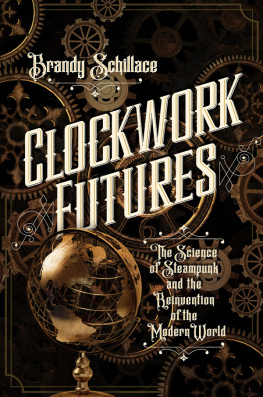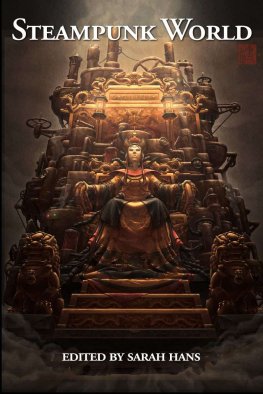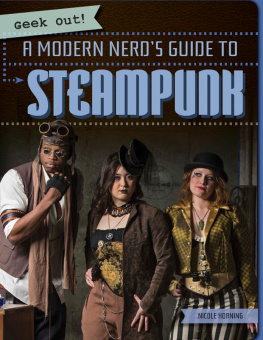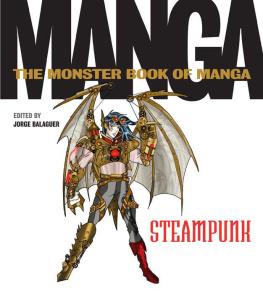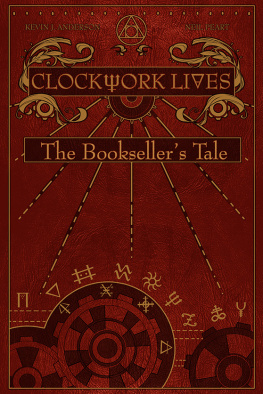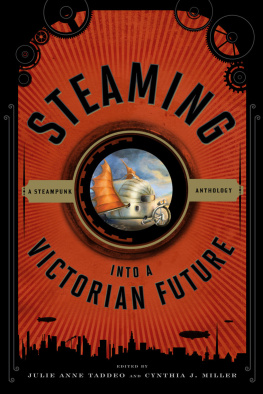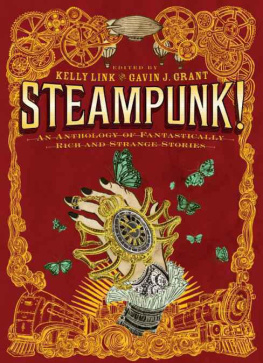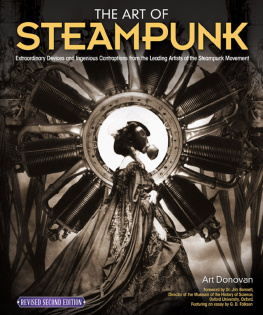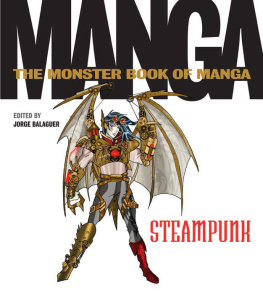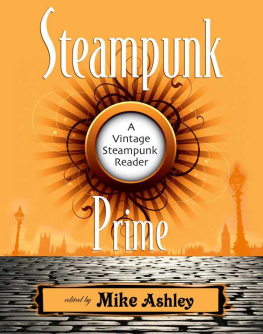
ALSO BY BRANDY SCHILLACE:
Deaths Summer Coat

CLOCKWORK FUTURES
Pegasus Books Ltd.
148 W 37th Street, 13th Floor
New York, NY 10018
Copyright 2017 by Brandy Schillace
First Pegasus Books cloth edition September 2017
Interior design by Maria Fernandez
All rights reserved. No part of this book may be reproduced in whole or in part without written permission from the publisher, except by reviewers who may quote brief excerpts in connection with a review in a newspaper, magazine, or electronic publication; nor may any part of this book be reproduced, stored in a retrieval system, or transmitted in any form or by any means electronic, mechanical, photocopying, recording, or other, without written permission from the publisher.
Library of Congress Cataloging-in-Publication Data is available.
ISBN: 978-1-68177-518-0
ISBN: 978-1-68177-582-1 (e-book)
Distributed by W. W. Norton & Company
For Mark

CONTENTS



E very good history begins with a story . The best of them build bridges through time where one storys end is lost in the next ones beginning, like a dragon swallowing its own tail. This one has its origin in a small book on a high shelf that, through a series of accidents, managed to turn up as the key to a curious set of questions about humans and clockwork, power, steam, and machines. A slim little volume, The New Epoch appeared in 1903, but contains a series of lectures given in the last years of the nineteenth century. Its size and antiquity make it practically invisible today; out of print, far from the well-lit shelves of bookstores or even from the bright screens of online purveyors. I only discovered it through someone elses discoverythe authors nephew, Elting Morison, found the book in his uncles library and worked up his own little volume in 1966, Men, Machines, and The chances were slim, the timing contrived, and the general obscurity to which the authors had fallen make the entire episode smack of fantasy and fate. But of course thats how the best stories often begin.
The earth is old; there continues to be some disagreement about how old, but far older than mankind, and by extension much, much older than that which mankind makes . Technology arrived on this planet, flung from sparks and driven by heat and curiosity and star dust, with all the old means of time and evolution summarily tossed aside. Within a period so recent that we are practically in the midst of it, says The New Epoch , man has acquired a new capacity, which marks as distinct an epoch in civilization as the earlier achievements made in the savage and barbarous life of primitive society. Wed come a long way from the Nile in 1896 (when Morisons first lecture was given), and I turned the pages greedily; Id discovered a window into a past world and was eager to hear about his designs for the future we now inhabit. Bright with anticipation, certain of ultimate success, and favoring the engineer and maker over the previous centurys philosophers and thinkers, the little book seemed to offer the germ of what we today call steampunk , that hopeful aesthetic of Victorian future-hunting.
For aficionados, steampunk needs no introductionbut even then, it might need a definition. Nearly every commentary on the subject begins by saying it cannot be defined, that its shape is amorphous and its origin cloudy. Strangely balanced between a nineteenth century that never was and a future that never will be, its the stuff of dreams, of nostalgia, of alternate pasts and futures that entice with the suave of James Bond and the savvy of Sherlock Holmes. If you think of it as a fiction genre, it can be traced to the work of Jules Verne and H. G. Wells, or linked to the science fiction and fantasy cross-novels of the 1980s and early 90slike Infernal Devices by K. W. Jeter or The Difference Engine by William Gibson and Bruce Sterling. Or to the Brian W. Aldisss 1973 novel Frankenstein Unbound , or to Mary Shelleys actual 1818 Frankenstein , or to Alan Moores graphic novel The League of Extraordinary Gentlemen , or Philip Pullmans His Dark Materials . By being ill-defined, steampunk isnt much troubled by boundaries and limits. It turns up in film and television, at least as early as The Wild Wild West , which stirred up an eager following in the 1960s, at about the same time Morisons nephew published Men, Machines, and Modern Times . And today, steampunk has blockbuster potential with movies like The Golden Compass , Robert Downey Jr.s Sherlock Holmes, The Prestige, or even Van Helsing , and it likewise turns up in maker cultures, among do-it-yourselfers, crafters, and costume designers. We arrive, not at a definition, so much as a composite creature.
Cynthia Miller and Julie Taddeo (editors of Steaming into a Victorian Future ) describe steampunk as a tension between past and future, anachronistic in its technology and magical in its whirring gears and golden machines. Cherie Priest, the acknowledged queen of steampunk, calls it an aesthetic movement based on available tech of the time The point is to look backward, back into that safe past which feels for us like solid ground. Of course, preference for the past has been going around almost as long as there have been pasts to prefer. What qualifies steampunk as a new social experiment, worthy of study? And what makes it important to this unfolding tale of men, machines, science, and power? In the end, it all comes down to the clockwork, and to our often futile attempts to order a mad, mad world.
Imagine the books of China Miville come to life, a strange combination of Perdido Street Station and Railsea. Now imagine this redesigned in the vein of Mad Max . The extraordinary result might look something like the Neverwas Haul, a steampunk contraption that skirts the Nevada deserts in advance of Burning Man. Roger Whitson, steampunk and Victorian pop culture scholar, describes the Haul as part diesel, part steamship. Its designer and pilot Shannon OHare, aka Major Catastrophe, heads up the Traveling Academy of UnNatural Science. Driven by Track Banshees, women whose artisanal skills create vehicles of unsurpassed beauty and power, the wagons literally bring fantasy to life.way steampunk was coined by K. W. Jeter in 1987 to describe Victorian fantasies that didnt fit into existing boxesthat amorphous aesthetic we are still trying to pin down. Plenty of lists describe the call it like you see it quality of the genre, but there is one thing that seems to be present in all of them, and also in the tinkers, gear-breakers, and costume-play-makers. Beneath, behind, and infusing the mechanism we have the ever present specter of time . Time travel, to be sure, but also a preoccupation with time, with futures and with pasts, and with the original machine in its own shapeless, measureless housing: the natural universe in its millennia, expanding, contracting, and ever moving.
Next page
